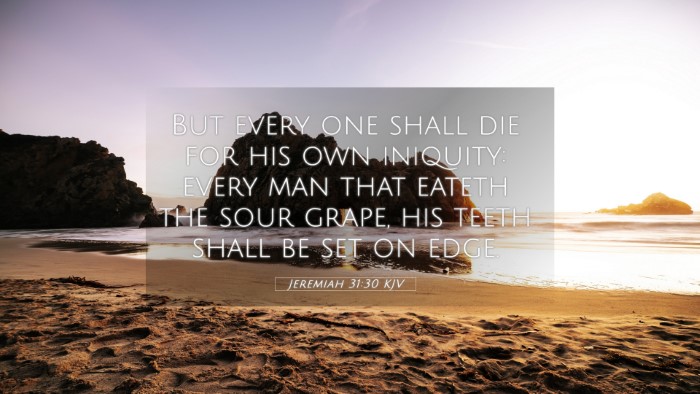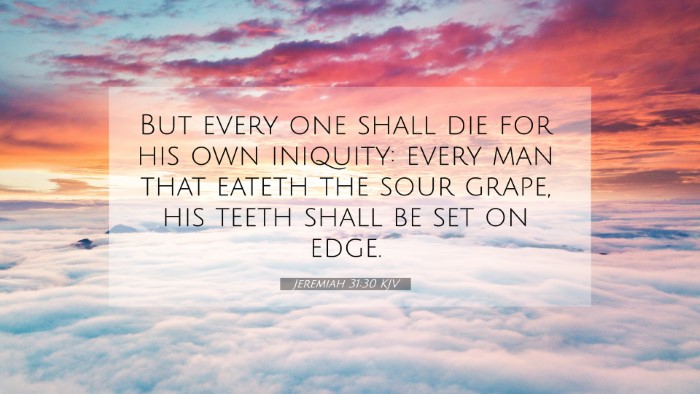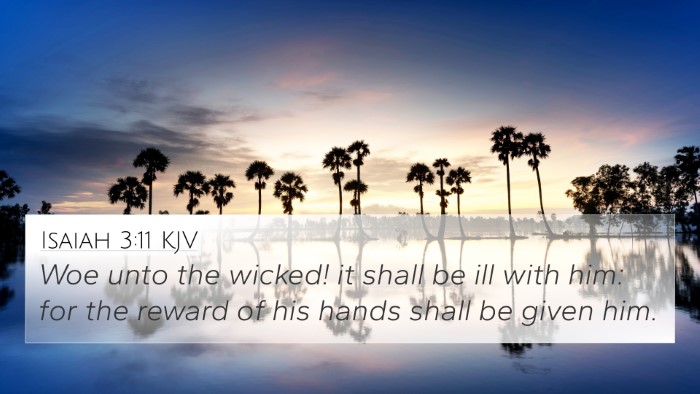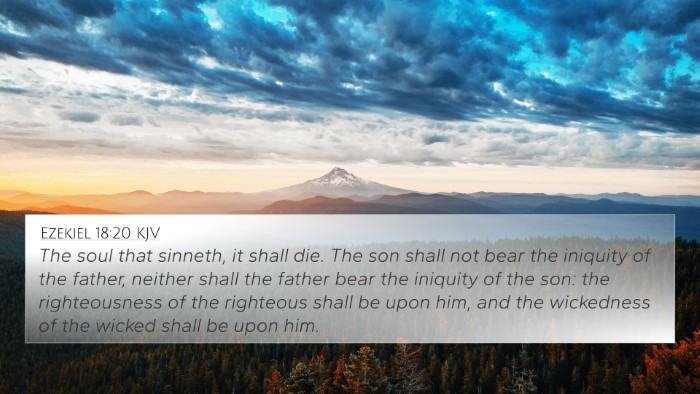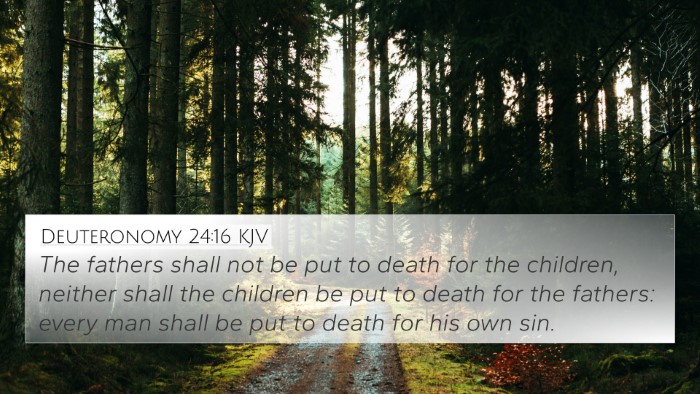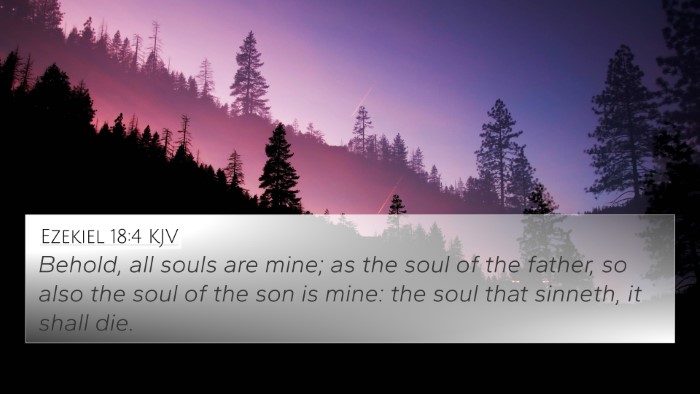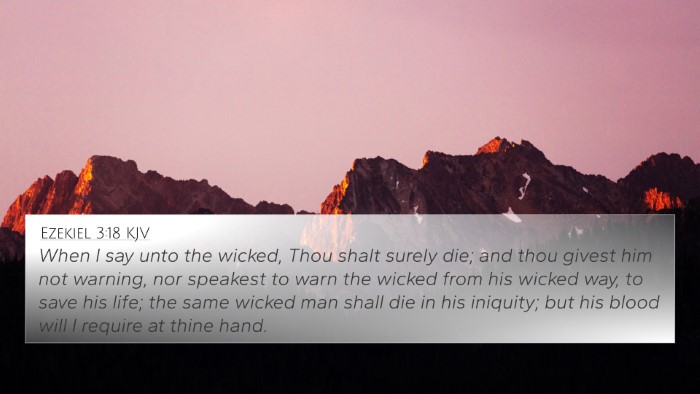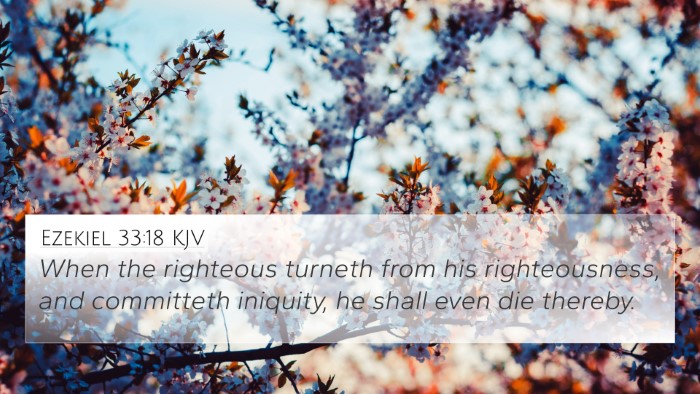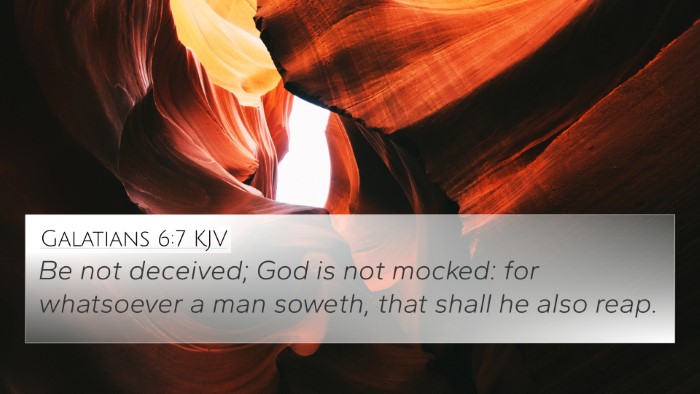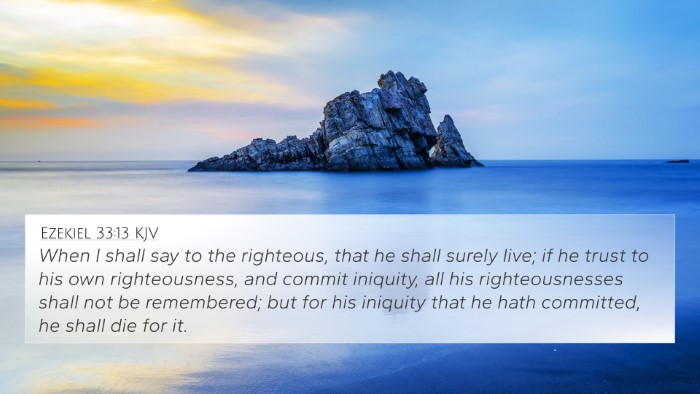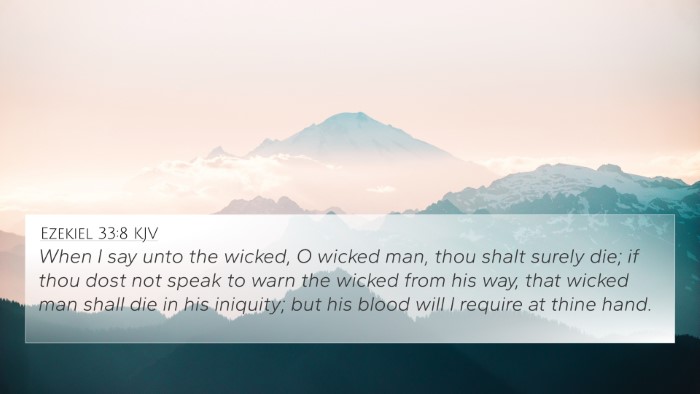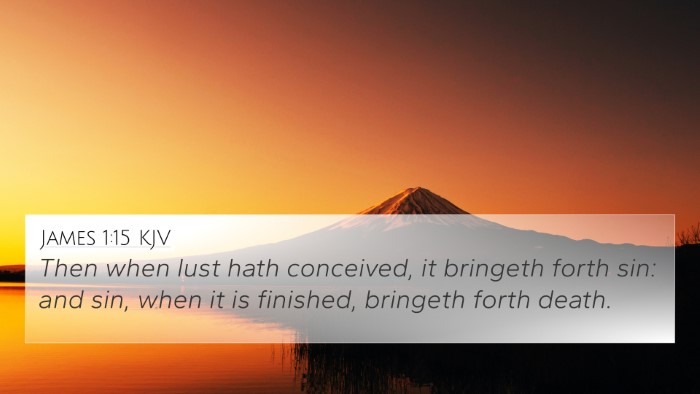Understanding Jeremiah 31:30
Jeremiah 31:30: "But every one shall die for his own iniquity: every man that eateth the sour grape, his teeth shall be set on edge."
This verse from Jeremiah carries profound implications regarding individual responsibility and the nature of sin. To contextualize this verse and deepen our understanding, we can explore insights from respected public domain commentaries, including those by Matthew Henry, Albert Barnes, and Adam Clarke.
Summary of Insights
- Personal Accountability: The main theme of Jeremiah 31:30 is personal responsibility for sin. Matthew Henry emphasizes that each individual is accountable for their own actions rather than bearing the consequences of others’ sins.
- Generational Consequences: Albert Barnes points out that the metaphor of "sour grape" signifies the bitter results of sin that affect not only the sinner but may lead to suffering among the innocent. However, the verse insists that ultimately, each will answer for their own deeds.
- Transformation of the Covenant: Adam Clarke notes this verse's place within the larger context of the New Covenant, where hearts will be renewed, and God will establish a personal relationship with each follower, diminishing the collective suffering seen in past generations.
Thematic Bible Verse Connections
The messages within Jeremiah 31:30 resonate throughout the Bible, making this verse pivotal for understanding notions of sin and redemption. Below are biblical cross-references that support the themes presented:
- Ezekiel 18:20: “The soul that sins shall die.” This verse parallels the idea of individual responsibility for sin.
- Galatians 6:5: “For each will have to bear his own load.” This New Testament passage reinforces the personal accountability theme.
- Deuteronomy 24:16: “Fathers shall not be put to death because of their children, nor shall children be put to death because of their fathers.” This underlines individual consequences of sin as illustrated in Jeremiah 31:30.
- Romans 14:12: “So then each of us will give an account of himself to God.” Each will stand before God for their sins, similar to the message in Jeremiah.
- Proverbs 1:31: “Therefore they shall eat the fruit of their way and have their fill of their own devices.” This reflects the outcome of personal choices echoing Jeremiah’s sentiments.
- 2 Corinthians 5:10: “For we must all appear before the judgment seat of Christ.” This emphasizes the accountability individuals have for their actions.
- John 9:2: “Rabbi, who sinned, this man or his parents, that he was born blind?” Jesus’ response integrates the theme of personal sin and accountability.
- James 1:14-15: “But each person is tempted when he is lured and enticed by his own desire.” The connection to personal sin reinforces the notion of individual consequence.
Cross-Referencing Biblical Texts
As one studies Jeremiah 31:30 alongside these cross-references, several patterns emerge:
- The Nature of Sin: There are consistent illustrations of how sin operates at both personal and communal levels.
- God's Justice: A theme of divine justice connects these verses, demonstrating that God holds individuals accountable for their actions.
- Hope of Redemption: Linked with this is the broader narrative of hope and renewal through the New Covenant, where the consequences of past sins can be overcome.
Tools for Bible Cross-Referencing
For individuals looking to explore and analyze Bible verses deeply, various tools are invaluable:
- Bible Concordance: Helpful in locating specific verses and their references.
- Bible Cross-Reference Guide: Provides a structured approach to studying scriptural connections.
- Cross-Reference Bible Study: Methods for understanding thematic elements across scripture.
- Comprehensive Bible Cross-Reference Materials: Resources that catalog relationships between verses efficiently.
Conclusion
Jeremiah 31:30 significantly emphasizes the importance of personal accountability in the context of sin. The connections throughout scripture help elucidate this point, reinforcing that while sin may have broader implications, the individual will ultimately answer for their choices. This understanding allows for a richer exploration of Biblical texts and assists readers in developing a more profound theological insight into individual responsibility before God.
Reflection
In reflection, the understanding of Jeremiah 31:30, with its emphasis on personal sin and accountability, invites us to consider our actions and their implications in the light of scripture, fostering a deeper relationship with God, underpinned by the New Covenant.

